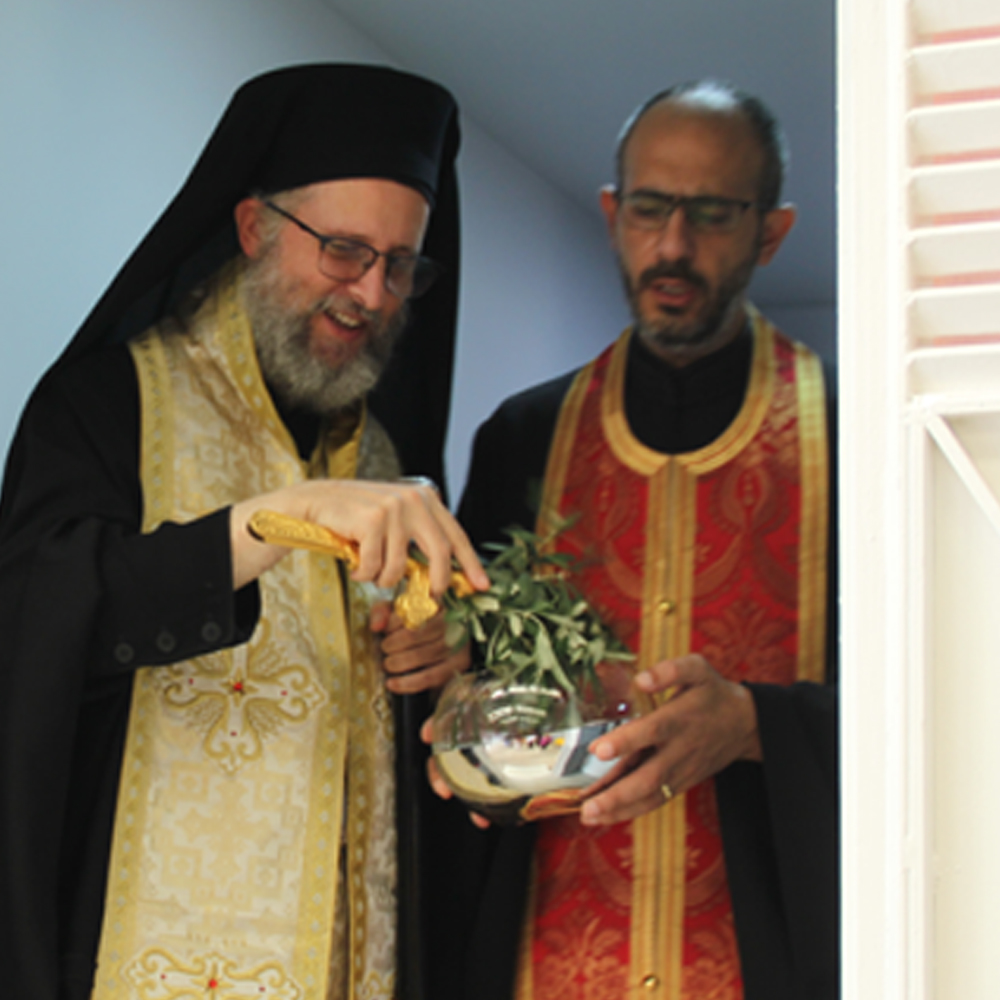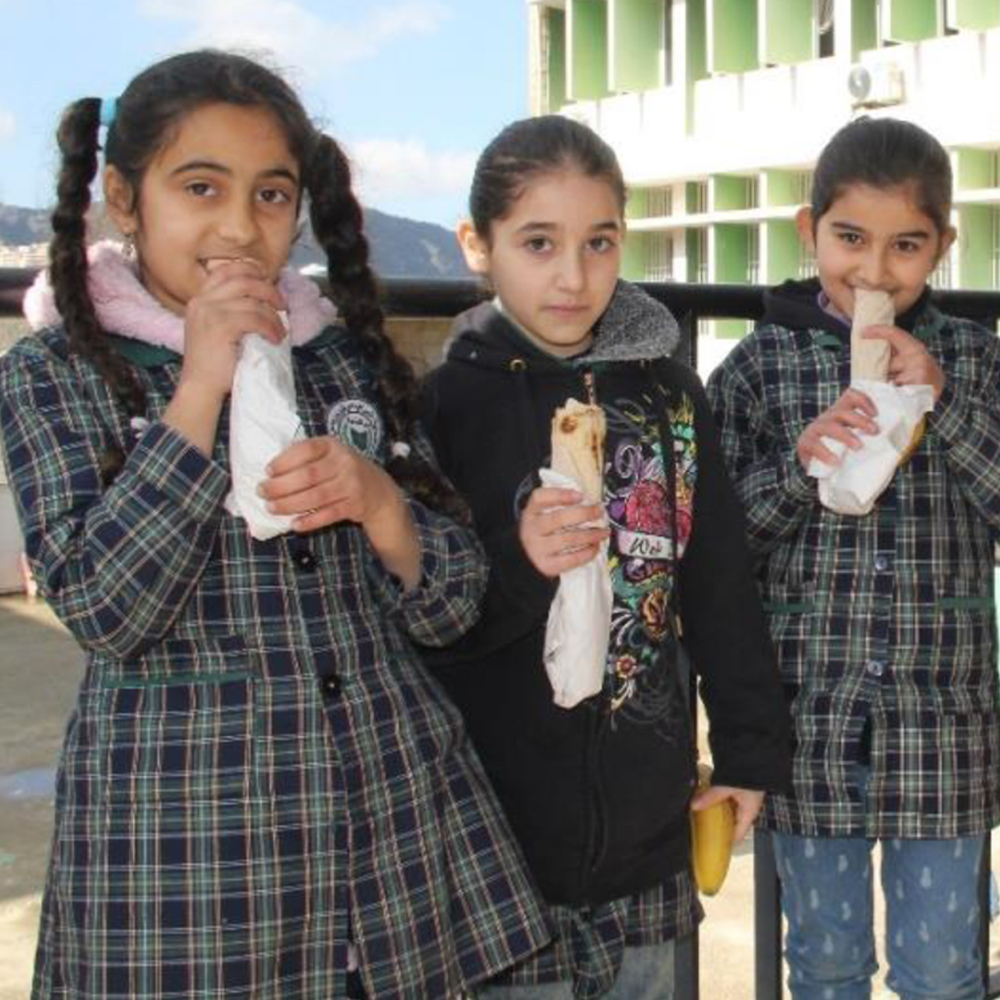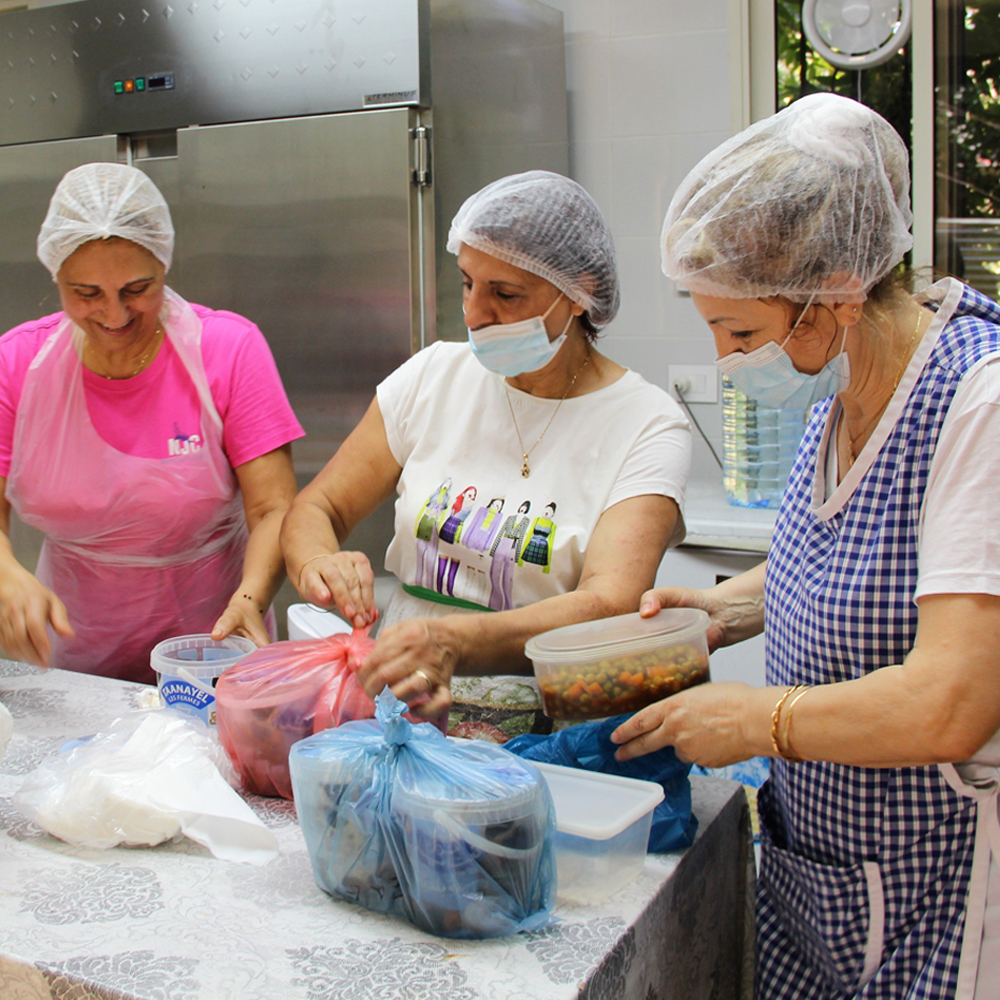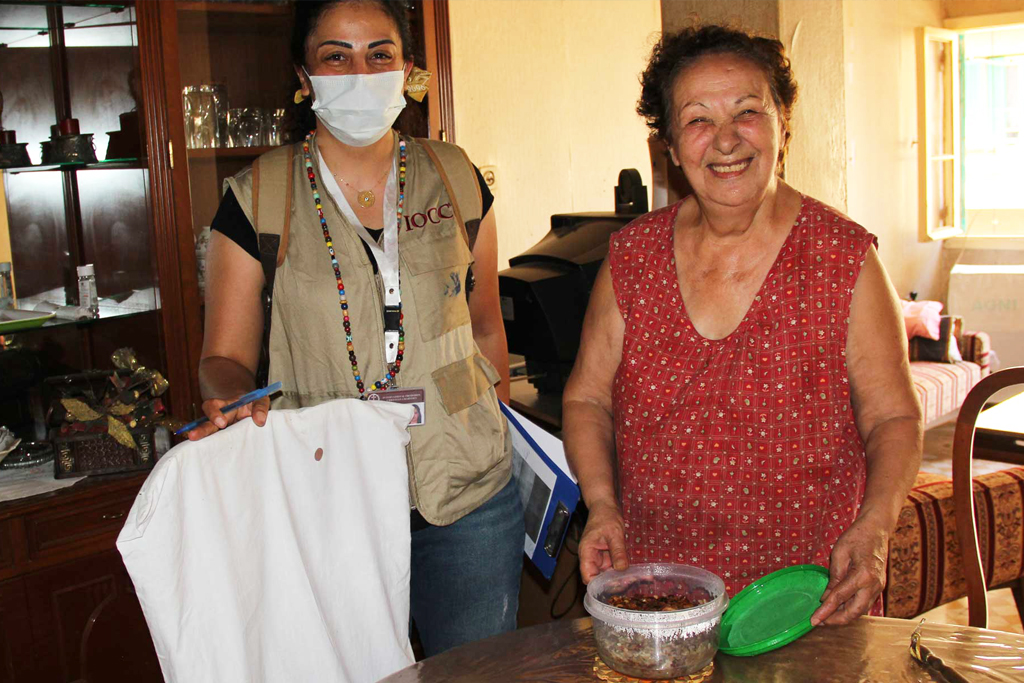
In the weeks since the devastating August 4 explosion in Lebanon’s capital city, IOCC’s team has been active in emergency assistance across Beirut—in addition to continuing regular programming across the country, all in the middle of the COVID-19 pandemic.
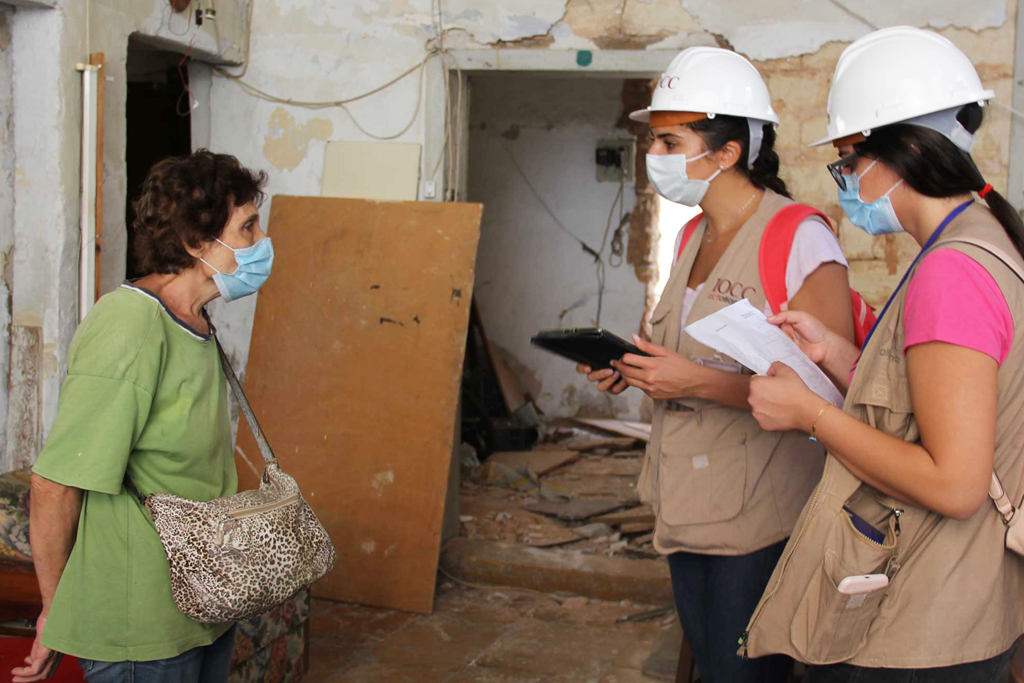
After ensuring that all staff were safe, IOCC’s response began with the deployment of health teams in the areas affected by the explosion and continued with needs assessments and the distribution of essentials. Teams went door to door in some of the city’s worst-affected areas, meeting residents, talking with them about their situations, examining their homes for repair needs—and offering them packets of toothpaste, soap, and other basic hygiene items.
With the support of longtime partner Norwegian Church Aid, a community kitchen from IOCC’s award-winning food-security program was quickly put into service preparing and delivering meals for hundreds of the most vulnerable families affected by the explosion. One recipient is Amal, age 70, who lives alone in Beirut. The explosion completely destroyed the windows and doors in her home. Through IOCC’s emergency programming, Amal is now receiving three hot, nourishing meals each week.
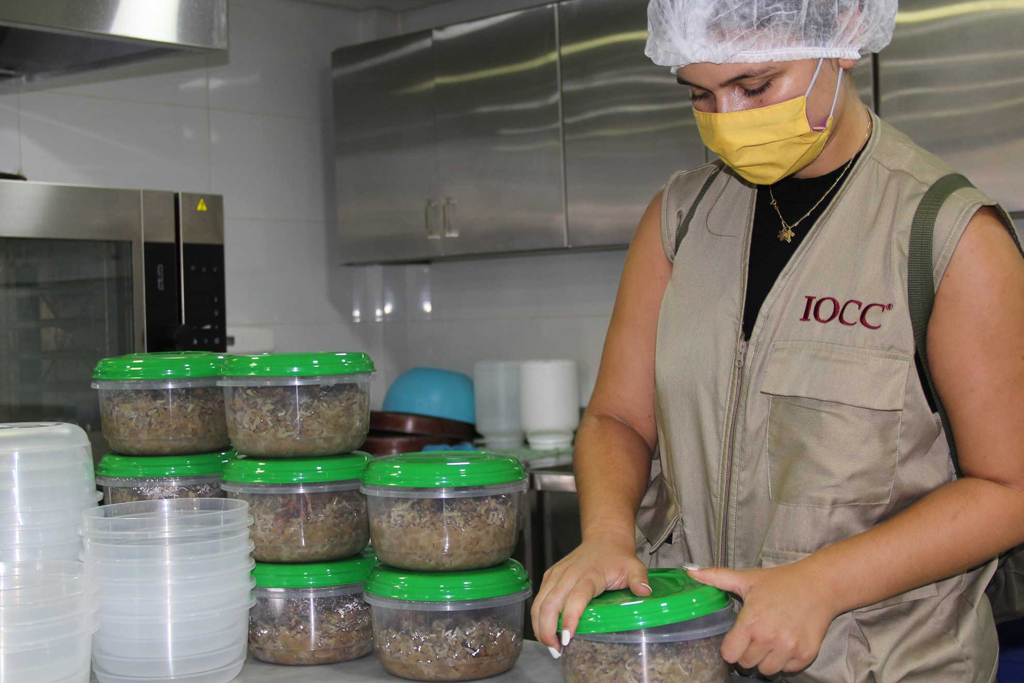
Fawaz, 42, is a Syrian refugee and father of six living in Beirut. An electrician by trade, he has been jobless since Lebanon’s financial crisis began. Financial difficulties mean Fawaz cannot afford to repair his house after the explosion; in fact, he has trouble affording basics for the children. As part of IOCC’s emergency response, Fawaz and his family now have regular nutritious meals, and his children also received coloring books they can enjoy while at home during the COVID-19 pandemic.
In addition, IOCC is collaborating with St. George University Hospital as the medical center works toward resuming service. Support includes purchasing medical equipment for the hospital, such as air compressors. Having these machines back in place will allow hospital staff to begin caring for patients once more.


